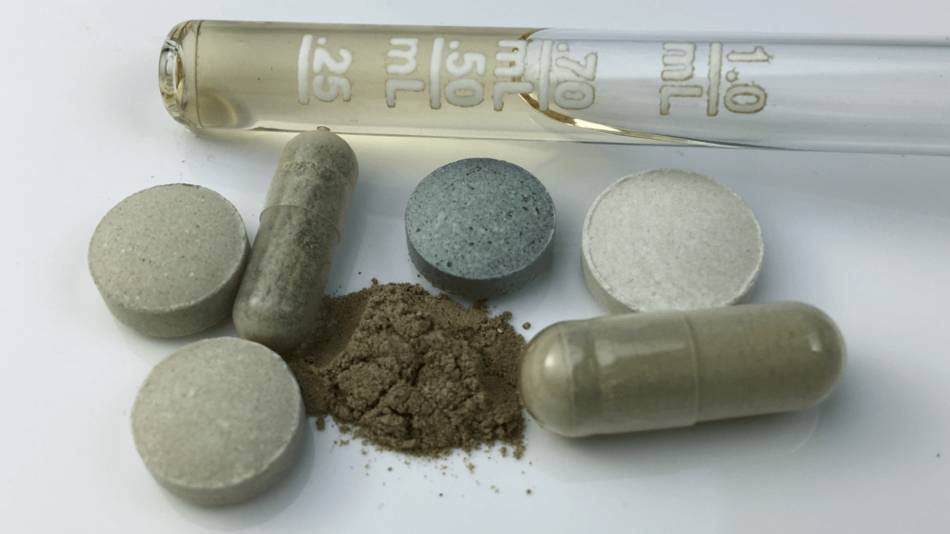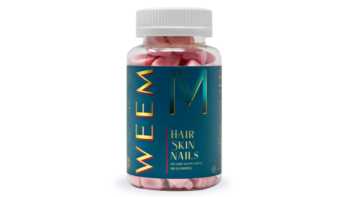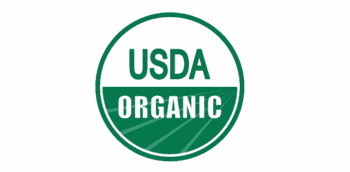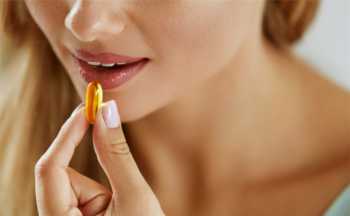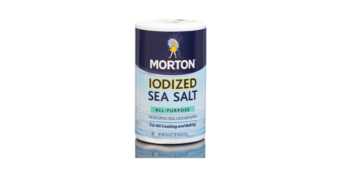Products tested in 2017
+— 22 sources
In addition the results of its expert testing, ConsumerLab uses only high-quality, evidence based, information sources. These sources include peer-reviewed studies and information from agencies such as the FDA and USDA, and the National Academy of Medicine. On evolving topics, studies from pre-print journals may be sourced. All of our content is reviewed by medical doctors and doctoral-level experts in pharmacology, toxicology, and chemistry. We continually update and medically review our information to keep our content trustworthy, accurate, and reliable. The following sources are referenced in this article:
- Küpper Proc Natl Acad Sci USA 2008
- Taylor, Chemosphere, 2016
- Brooks, J Pediatr Endocrinol Metab 2014
- Combet, Br J Nutr 2014
- FDA, Perchlorate Questions and Answers 2017
- Hall, Appetite 2012
- Hoad, J Nutr 2004
- Meletis, JEBIM 2011
- Paxman, Appetite 2008
- Amster, Environ Health Perspect 2007
- Cao, Chem Eng J 2021
- Clark, Endocrin Pract 2003
- DeMarini, Environ Mol Mutagen 2020
- Eliason, J Am Board Fam Pract 1998
- Gaby, Am J Thera 2018
- Goihman-Yahr, Int J Derm 2002
- Harrell, Arch Dermatol 1976
- Hitch, Arch Dermatol 1961
- Leung, Nat Rev Endocrinol 2014
- Pennington, J Am Diet Assoc 1990
- Pye, Lancet 1992
- Stagi, Horm Res Paediatr 2010
Summary
-
Do I need kelp?
Kelp supplements may contain small amounts of a variety of vitamins and minerals, but they are primarily a source of iodine — easily providing the daily requirement in a small pill or serving of powder. (See What It Is)
-
Why take a kelp supplement for iodine?
People are generally not deficient in iodine unless they follow a restrictive diet, avoiding iodized table salt (be aware that specialty salts are not iodized), dairy, bread, and/or seafood. However, pregnant and nursing women should supplement with iodine. You don't have to take a kelp supplement to get iodine. Taking a supplement containing potassium iodide (common in multivitamins) is just as good and may be a safer choice since you're more likely to get the listed amount of iodine, there is less likelihood of contamination with arsenic or other heavy metals, and iodine from kelp appears to be absorbed only half as well as that from a potassium iodide supplement. Nevertheless, if you prefer a natural source of iodine, a carefully chosen kelp supplement can be fine.
-
What are the other health benefits of kelp?
Kelp supplements have been promoted for increasing energy and for weight loss. This has not been clinically proven, but such effects are possible when iodine in kelp treats underlying hypothyroidism due to iodine deficiency (See What It Does)
-
How's the quality of kelp supplements?
You need to be very careful. ConsumerLab's tests in this Review found that half of the iodine supplements contained approximately twice as much iodine as listed on their labels, which is a safety concern. In addition, one of these was contaminated with arsenic, a toxin. It is not clear if any particular kelp plant species or harvesting location is better than another (See What CL Found and How Products Were Evaluated).

Best choice of kelp supplements?
Among the kelp supplements which contained their listed amounts of iodine and did not exceed contamination levels for arsenic or other heavy metals, CL chose one (costing just 1 cent per dose) as its Top Pick.-
How much kelp to take?
Adults generally need 150 mcg of iodine per day, but this increases with pregnancy and lactation. To get 150 mcg of iodine you need about 30 mg to 150 mg of kelp powder, or less if using a kelp extract (which is more concentrated in iodine) (See ConsumerTips™).
-
Safety and side effects of kelp supplements:
Since many kelp supplements contain too much iodine and may be contaminated, you must choose a product carefully. Women who are pregnant or nursing should get iodine from a supplement containing potassium iodide rather than from a kelp supplement. (See Concerns and Cautions).
As a ConsumerLab.com member, you may print a copy of this report for your personal use.
You can access a special print version by clicking the "Print" icon in the upper right corner of this report.
You can then use your web browser's print functions to print the whole report or just selected pages.
You may also email or post a link to this report using the web address above.
Non-members using the link will see a free summary and can join to view the full report.
Other means of copying or distributing this report, in part or full, are not permitted.
If you are sight-impaired and your computer is having trouble converting the text in this report to speech,
contact us for assistance at Membership@ConsumerLab.com or by
phone at 914-722-9149.

